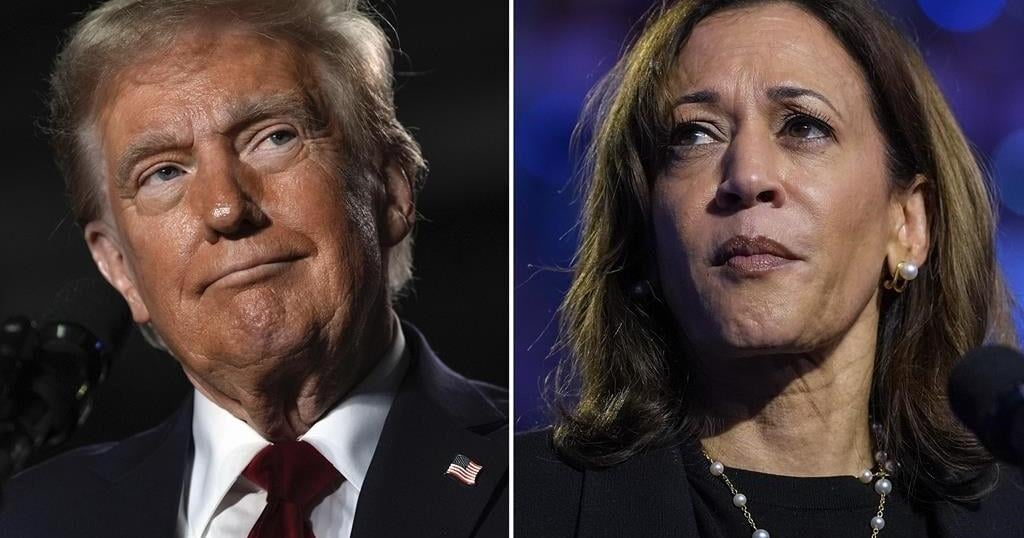HALIFAX – A new memorial recently dedicated in a small Nova Scotia community honours eight brothers whose story of service in the Second World War had been all but lost to local memory.
The Harvie brothers from Gormanville, N.S., all served in Europe — six returned home, while two died and are buried overseas.
A black granite monument is now inscribed with the names and photos of Avard, Burrell, Edmund, Ernest, Ervin, Garnet, Marven and Victor Harvie. It stands in a small memorial park just up the road from their hometown, beside the Royal Canadian Legion branch in Noel, N.S.
The number eight is inscribed prominently in the middle of the memorial.
The monument in the town about 70 kilometres north of Halifax is the brainchild of legion president Jeff Thurber, who only became aware of the Harvie brothers’ remarkable story around the time of his branch’s Remembrance Day service last year. That was when he happened to see them mentioned in a memorial book kept by the legion.
Thurber was fascinated by his find but said it became apparent to him that over the years the brothers’ story had “just been lost in the dark.” Garnet, the last of the surviving brothers, died in 2000.
“There wasn’t even as much as a plaque to commemorate them,” he said in a recent interview. “I’m sure everyone in the area was aware of them at the time they served, but then of course (their story) just disappeared.”
Victor Harvie, 83, whose father Ernest served with the North Nova Scotia Highlanders during the war, said in an interview that he was only aware of scant details about his family’s wartime service.
“None of them ever told us anything,” Harvie said recently, adding that even his uncle Victor’s wife knew very little about her husband’s experiences serving in the tank corps. His uncle had told her simply, “You don’t have to know about that.”
Harvie, who is named after his uncle, also served in the military, enlisting in 1959, and he said it was his experience that many war veterans simply didn’t talk about their experience on the battlefield.
“When I joined there were still a lot of guys that had been in the war,” he said. “I never heard one of them say anything about what they did or what happened. It was very hush, hush. I guess they didn’t want to bring back any memories.”
Harvie said that while stationed in Germany he was able to visit “quite a few times” the grave of his uncle Marven at the Canadian War Cemetery in Groesbeek, Holland.
Marven Harvie, the youngest of the eight brothers who served, was killed in March 1945 at the age of 19 while fighting with the North Nova Scotia Highlanders in Germany. Burrell Harvie, who was injured while serving in the Canadian Forestry Corps, died at the age of 32 and was buried in Surrey in the United Kingdom in 1942.
In addition to Ernest and Victor, the other brothers who returned to Canada after the war were Garnet, who also served in the North Nova Scotia Highlanders and was wounded in Normandy following the D-Day landings; Ervin, who was a member of the tank corps; Avard, who was in the ordnance corps; and Edmund who served in an artillery regiment.
The monument in Noel — built thanks to $30,000 in local fundraising, including a $5,000 donation from the local fire department — was dedicated in a ceremony last month attended by Harvie family members from across Canada.
Thurber said it will stand as a fitting tribute to ensure one family’s service is not forgotten.
“This should have happened 75 years ago, and now it’s something that the next generation is going to remember,” he said.
This report by The Canadian Press was first published Nov. 5, 2024.




















